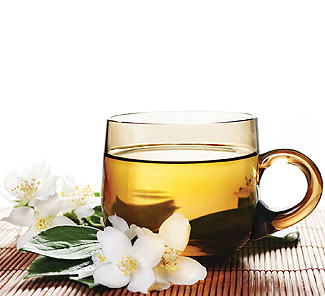Numerous health benefits have been attributed to tea since time immemorial. In folk medicine, the health benefits of tea were already recognized 5000 years ago and it was used as a treatment for infectious diseases, colds, and also as an aid to the digestive and nervous systems. Typhoo has a long and rich heritage, stretching back to 1903 when Birmingham grocer John Sumner developed and sold a blend of tea in his shop. John´s sister, Mary, was the inspiration behind the product development, as she highly regarded tea as a cure for indigestion.

Tea contains antioxidants – Tea is high in antioxidants that are also found in fruit and
vegetables and, as part of a balanced diet, can help to maintain
a healthier lifestyle. Consuming more antioxidants can help
protect the body against naturally produced toxins called
free radicals. Research indicates that antioxidants can have a
protective effect against some cancers and help prevent heart
disease and stroke. Antioxidants may also help protect against
age-related memory impairments such as Alzheimer´s.
Show More +
Tea has less caffeine than coffee
- Coffee usually has two to three times the caffeine of tea. An
eight-ounce cup of coffee contains around 135 mg caffeine;
tea contains only 30 to 40 mg per cup. If drinking coffee gives
you the jitters, causes indigestion or headaches or interferes
with sleep --switch to tea.
Tea is calorie-free Tea doesn´t have any calories, unless you add sweetener or
milk. Consuming even 250 fewer calories per day can result in
losing one pound per week. If you´re looking for a satisfying,
calorie-free beverage, tea is a top choice.
Tea contains valuable minerals – Often a dessert of choice for ceremonies, cakes are also relished without occasion. There are countless cake recipes; some rich and elaborate, some more like breads, but all of these can be enjoyed with a cup of tea, any time of the day.
Want to download and send to a friend? Click here.
Show Less

Tea gives you a sweet smile-It´s the sugar added to tea
that´s the one to blame for dental problems. Tea itself actually contains fluoride and tannins that may keep plaque at bay. So add unsweetened
tea drinking to your daily dental routine of brushing and flossing for healthier teeth and gums.
Show More +
Tea helps keep you hydrated- Caffeinated beverages,
including tea, used to be on the list of beverages that didn´t contribute to our daily fluid needs. Since caffeine
is a diuretic and makes us pee more, the thought was that caffeinated beverages couldn´t contribute to our overall fluid requirement.
However, recent research has shown that the caffeine really doesn´t matter -- tea and other caffeinated beverages definitely contribute to our fluid needs. The only time the caffeine becomes a problem as far as fluid is concerned is when you drink more than five or six cups of a caffeinated beverage at one time.
Tea aids in weight reduction- In a study by Japanese
scientists, research suggests that black tea polyphenols support healthy weight loss and reduce body fat thanks to their ability to reduce fat
absorption. The data revealed that black tea polyphenols prevented weight gain following a high fat diet.
Tea bolsters your immune defenses- Drinking tea may help your
body´s immune system fight off infection. When 21 volunteers drank either five cups of tea or coffee each day for four weeks, researchers saw higher
immune system activity in the blood of the tea drinkers.
However, recent research has shown that the caffeine really doesn´t matter -- tea and other caffeinated beverages definitely contribute to our
fluid needs. The only time the caffeine becomes a problem as far as fluid is concerned is when you drink more than five or six cups of a caffeinated beverage at one time.
Tea may reduce your risk of heart attack & stroke-
The antioxidants in green,black, and oolong teas can help block the oxidation of LDL (bad) cholesterol, increase HDL (good) cholesterol and improve artery function. A Chinese study published recently in the Archives of Internal Medicine showed a 46%-65% reduction in hypertension risk in regular consumers
of oolong or green tea, compared to non-consumers of tea.A University of Penn State-led review of the available evidence from 66 published studies, supports the view that consuming flavonoid-rich tea, in moderation, can be associated with reduced risk for cardiovascular disease.
Tea protects against cancer-
Thank the polyphenols, the antioxidants found in tea, once again for their cancerfighting effects. There are enough studies that show the potential protective effects of drinking tea to make adding tea to your list of daily beverages.
Want to download and send to a friend? Click here.
Show Less

Tea Increases Metabolism-
In a study by Japanese scientists, research suggests that black tea polyphenols
support healthy weight loss and reduce body fat thanks to their ability to reduce fat absorption. The data revealed
that black tea polyphenols prevented weight gain following a high fat diet.
Show More +
Tea protects your bones-
In the past it was thought that certain constituents
found in tea, such as caffeine and fluoride, may weaken
the bones. However, recent research is now suggesting
that drinking tea can actually have a positive effect on
bones. Studies among older women have found that
women who drank four or more cups of tea a day
had improved bone density compared to women who
were non-tea drinkers. Furthermore, the milk that
is added to tea, as enjoyed by the majority of the
population, is a source of Calcium, which is important
for bone health. In fact, the milk in four cups of tea a day
provides 21% of an adult´s daily calcium requirements
Want to download and send to a friend? Click here.
Show Less
Typhoo Tea Worldwide | Typhoo Tea UK | Media | Careers | Contact Us | Privacy Statement | Disclaimer | Site Map





